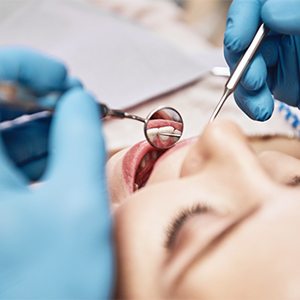


When they’re healthy, your gums will fit snugly around the teeth, protecting the roots from harmful bacteria and other kinds of damage. But if the plaque that regularly builds up in your mouth isn’t removed on a regular basis, your gums can become irritated and inflamed, leading to an infection more commonly known as gum disease. Our team at Advanced Dentistry of Alhambra can help you treat this condition, but if you want to keep all your natural teeth safe, you’ll want to avoid gum disease altogether.


One of the most important steps for keeping your gums healthy is to keep your regular dental appointments. During these visits, we’ll routinely check for signs of periodontal disease; this means looking for symptoms of early gingivitis as well as more advanced periodontitis. We can evaluate the color and firmness of your gums to make sure they’re healthy, and we’ll also measure the space between your teeth and gums to see if any periodontal pockets are present. (Advanced gum disease tends to create larger pockets.) These screenings can help us find the warning signs of gum disease before too much damage is done, giving us a chance to reverse the problem in its earliest stages.

In general, the best way to prevent gum disease is to keep your teeth and gums as clean as possible. Naturally, this means brushing at least twice a day with a toothpaste that has been approved by the ADA to be both safe and effective. Also, it’s important to floss on a daily basis to get rid of any plaque or food particles that have accumulated between your teeth; you can use an interdental cleaner instead if using traditional floss is challenging for you. Depending on the state of your mouth, we may be able to recommend ways you can improve your daily oral hygiene routine.

Poor health habits can significantly increase your risk of gum disease. If you use tobacco of any kind, you should stop as soon as possible; tobacco products leave the gums more vulnerable to infection and can cause bacteria levels to rise. You should also pay attention to your diet and keep your intake of sugary foods that can contribute to oral health issues to a minimum.